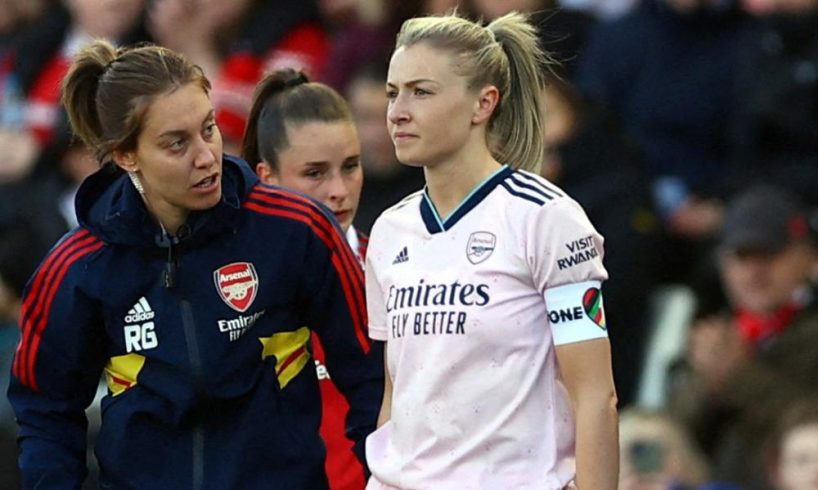
Photograph: Molly Darlington/Reuters
Elite female footballers who suffer an anterior cruciate ligament (ACL) injury are more likely to have played more matches, had less rest, and travelled further with their teams than their colleagues, a new study has found.
Research commissioned by the players’ union, Fifpro, looked at the workload of 139 players in the leading women’s leagues in Europe, including 58 who were injured at least once during the 2022-23 season. The results found that injured players had enjoyed fewer rest days than non-injured players whatever the medical issue, but observed greater differences with those who suffered ACL problems.
According to the report, which was part-authored by Fifpro’s chief medical officer Prof Vincent Gouttebarge, analysis showed that “elite female footballers who injured their ACL were exposed to a higher number of matches, lower number of rest time and a higher number of rest periods of less than five days between matches than non-injured players” in the 28-day period that preceded the injury. Similarly, players who injured their ACL were “also exposed to a higher travelled distance, a higher travelled time and a higher number of time zones crossed than non-injured players in the 28-day period preceding the ACL injury date.”
In relation to all injuries, the report observed that injured elite female footballers were exposed to a higher number of rest periods “of less than five days between matches than non-injured players in the 28-day period preceding the injury date”, but found no other statistically significant differences.
The risks related to the high physical workload expected of elite players in both the women’s and men’s game is a recurring issue for Fifpro, as well as for domestic players’ unions such as the Professional Footballers’ Association. But the issue of ACL injuries in women’s football is of particular concern, with the former England international Karen Carney, writing in the Guardian, describing the problem as being that “we do not have a full understanding of various aspects of elite sportswomen, not just in football, and until we do, they will keep getting injuries that could be prevented”.
Among the recommendations made in the report on how to respond to the findings, a restructured match calendar was the first suggestion. Additional recovery time should also be given to players “who are exposed to travel fatigue and jet lag”, the report argued, with their return to training and competition “guided by certified [medical] professionals”. The extent of the workload players experience in training should also be taken into consideration.






